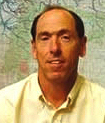Microhabitats: Potential for oil cleanup, extraterrestrial life

Results from an environmental study of the world’s largest asphalt lake shine new light on how life on Earth can survive in even the most inhospitable environments.
Scientists already knew that microbes can thrive at the boundary where water and oil meet, but the discovery at Pitch Lake on the Caribbean island of Trinidad that they can live within the oil and were found to be actively degrading the oil opens up new possibilities for using them to clean up spills.
“We discovered that there are additional habitats where we have not looked at where life can occur and thrive,” says Dirk Schulze-Makuch, co-author of the study and a professor in the WSU School of the Environment.
The wiliness of these microbes suggests that life on other planets — at least at the microscopic level — may not be so far-fetched after all.
Read more about the research, results, and possibilities:
WSU News
Science Magazine
Discover Magazine
Nature
The Daily Galaxy
China Topix
The Times of India
Astrobiology.com
Mother Nature Network
Photos: Live Science




